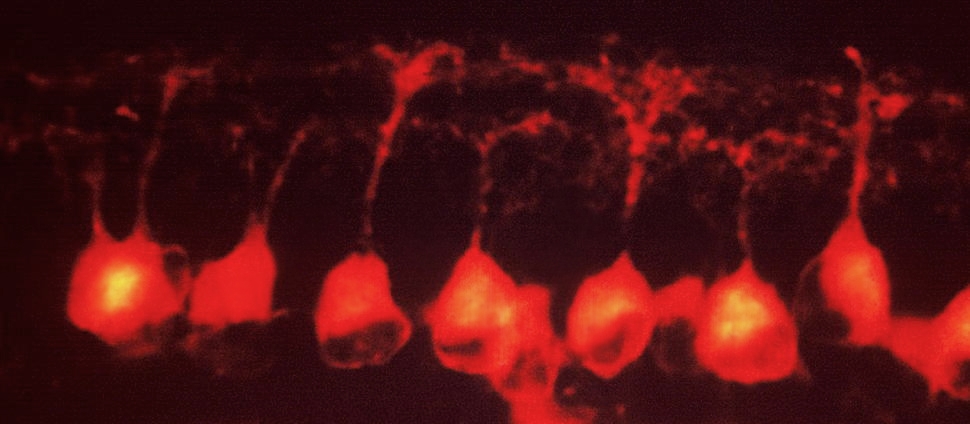Document Type
Article
Publication Date
11-1-2021
Publication Title
eLife
Abstract
Selective relationships are fundamental to humans and many other animals, but relationships between mates, family members, or peers may be mediated differently. We examined connections between social reward and social selectivity, aggression, and oxytocin receptor signaling pathways in rodents that naturally form enduring, selective relationships with mates and peers (monogamous prairie voles) or peers (group-living meadow voles). Female prairie and meadow voles worked harder to access familiar versus unfamiliar individuals, regardless of sex, and huddled extensively with familiar subjects. Male prairie voles displayed strongly selective huddling preferences for familiar animals, but only worked harder to repeatedly access females versus males, with no difference in effort by familiarity. This reveals a striking sex difference in pathways underlying social monogamy and demonstrates a fundamental disconnect between motivation and social selectivity in males—a distinction not detected by the partner preference test. Meadow voles exhibited social preferences but low social motivation, consistent with tolerance rather than reward supporting social groups in this species. Natural variation in oxytocin receptor binding predicted individual variation in prosocial and aggressive behaviors. These results provide a basis for understanding species, sex, and individual differences in the mechanisms underlying the role of social reward in social preference.
Volume
10
DOI
10.7554/eLife.72684
Creative Commons License

This work is licensed under a Creative Commons Attribution 4.0 International License.
Rights
© Beery et al.
Version
Version of Record
Recommended Citation
Beery, Annaliese K.; Lopez, Sarah A.; Blandino, Katrina L.; Lee, Nicole S.; and Bourdon, Natalie S., "Social Selectivity and Social Motivation in Voles" (2021). Neuroscience: Faculty Publications, Smith College, Northampton, MA.
https://scholarworks.smith.edu/nsc_facpubs/21


